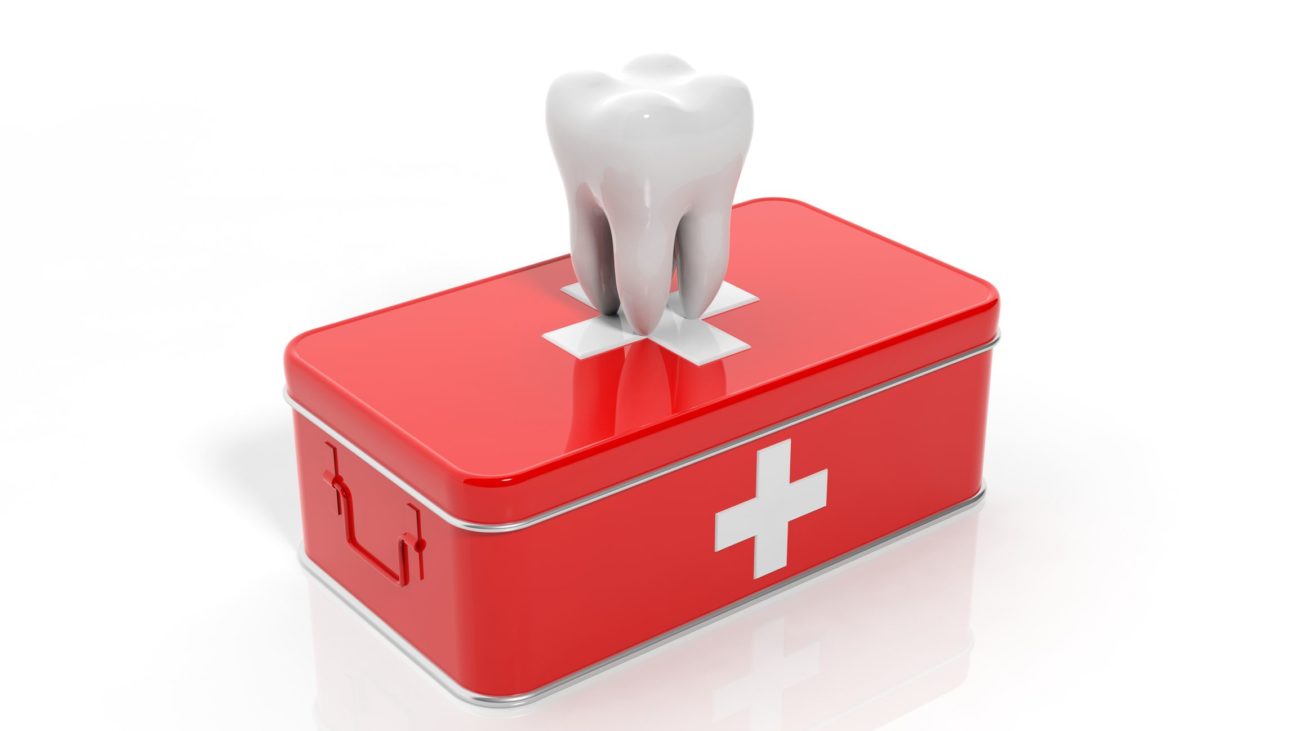Life is chaotic and unpredictable. You never know what can happen from one moment to the next. Therefore, it is important to prepare yourself in the event of a dental emergency. Most dental emergencies include extreme swelling, pain, trauma, or bleeding. Unfortunately, while you may know when to seek emergency attention, you might not know what to do before you reach your dentist.

Broken or Missing Tooth
If you perform some sort of activity and fall or receive trauma to the face, you may lose or break a tooth. If this is the case, you must get to an emergency dentist as soon as possible. Losing a tooth is a dental emergency that can lead to other serious issues. For example, you can develop an infection in your tooth or gums if left untreated. In addition, if you elect not to get a missing tooth fixed, your surrounding teeth can become loose or fall out too.
Having a tooth break or come out entirely can be frightening. Being upset or even scared is natural, but you must not panic. If you handle your tooth correctly, there is a high possibility that your dentist will be able to save your tooth without much issue.
What To Do
Once you locate your tooth, be sure to pick it up by the crown and not the root. The crown is the white portion of your tooth that stays above the gums. It is essential that you do not touch the exposed root, which contains fragile nerves. You could damage the tooth and make it nearly impossible to reimplant your tooth.
Gently rinse your tooth in cool water. Next, you must store your tooth before traveling to your dentist. The best place to keep your tooth is in your mouth. If possible, put your tooth back in its socket. This will ensure its safe travel and stay moist.
Additionally, you can set the tooth between your cheek and gums. Your saliva is the best way to keep your tooth moist. However, you can also put your tooth in a glass of milk to transport it to the dentist.
Excessive Bleeding
It is not uncommon to experience some bleeding in your gums, especially if you have gingivitis. However, if you receive a laceration or puncture wound to your gums, cheeks, or lips, you may need to see a dentist. You can easily handle a scratch, but bleeding that doesn’t stop is an issue. If you cannot control the bleeding quickly, you should go to the dentist.
Suppose you have had a recent dental procedure, like an extraction. In that case, your dentist must know that you are continuing to bleed.
What To Do
When you have a wound that won’t stop bleeding, place a clean, damp cloth on the area. Hold pressure in order to slow the bleeding. While it may not stop the bleeding, it will help. You should also consider using an ice pack over the cheek. The coolness of the ice will constrict the blood vessels and help slow the bleeding. Additionally, the ice pack will help minimize the pain and swelling.
